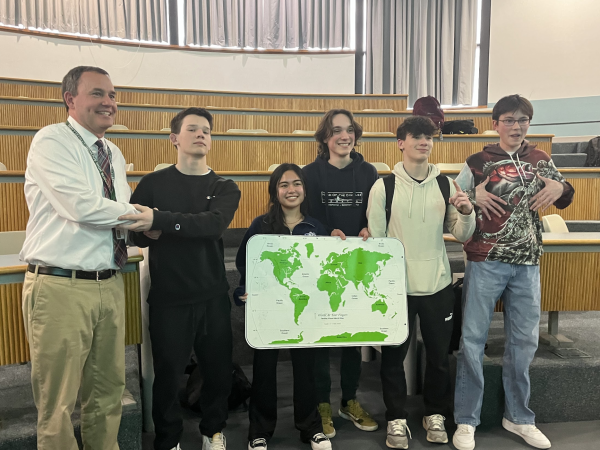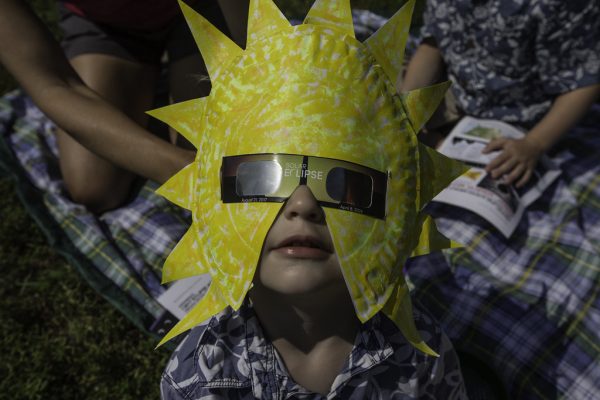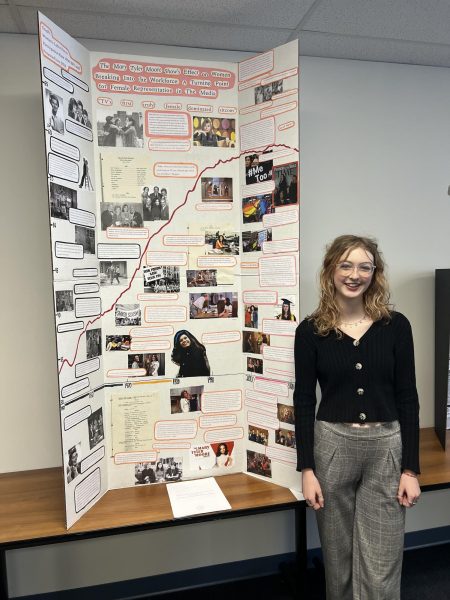Human trafficking: the myths, the dangers, the rise
Human trafficking is a huge, global issue, seemingly too large to comprehend and too foreign to personally be a threat to us. Human trafficking – defined as the use of force or fraud to obtain some sort of labor or commercial sex work, a modern-day slavery – might be something we see on the news, but it’s not something we think about in our lives, not something we watch out for. But human trafficking happens right here in Syracuse. It did to the two women found in the Cherry Blossom Spa on West Seneca Street in Manlius, located in the strip mall which also contains a Dominos and a Dollar Tree, a place frequented by residents. This happened in a familiar place right under our unsuspecting noses, and it is far from unique.
This idea that human trafficking is a horrfying, distant thing that is not a danger to us here is a very dangerous misconception. There have been multiple cases of human trafficking in Syracuse, such as in 2020, when three men were arrested for connections to forced prostitution and human trafficking. In New York State just this year, there were over 2,000 cases of human trafficking – and that’s with the vast number of human trafficking cases remaining unreported and undetected. The International Labor Organization estimates that there are 40.3 million victims of human trafficking worldwide, with as many as 14,500-17,500 foreign nationals being trafficked into the United States a year, and that’s just the numbers that are known.
Foreign nationals are not the only ones in danger. In the US itself, cases have been on the rise, with many at-risk groups, such as street youth, bearing the brunt of it. One in five homeless youth are victims of human trafficking. Even groups not seen at risk, kids with homes and some level of security, are often at risk. The case in 2020, for example, showed one of the perpetrators using social media to pressure a twelve-year-old girl into activities which would qualify as prostitution. Some kids can be pressured through social media, or some are in relationships with adults who may manipulate or pressure them into it. Regardless of how, the result is the same: even groups considered less at risk can still be victims of human trafficking, and it’s often invisible and hard to pinpoint for authorities, and even for the victims themselves.
So, what’s being done about it? In 2014, the Human Trafficking Prevention Act, an amendment on the previous 2000 Human Trafficking Protection Act, was passed, to require training related to human trafficking for federal government employees to include: a distance learning course on issues and laws surrounding human trafficking, information and briefings for federal employees, and reminders on the common methods and signs of human trafficking, among other things. In May of 2020, HHS announced funds for the Human Trafficking Youth Prevention Education Demonstration Program, a program that provided $3.5 million to local education agencies, working in partnership with a nonprofit, or NGO, to help with developing and putting into effect programs to prevent human trafficking. Recently, in July 2021, New York State passed a bill which would allow human trafficking victims to acquire damages and other relief, as well as expanding the statue of limitations for human trafficking from 10 to 15 years.
Yet, despite these efforts, human trafficking has continued to rise, especially now, due to the pandemic. There have even been cases of government officials, such as Florida Representative Matt Gaetz, being involved in, and accused of, sex trafficking charges, with his associate Joel Greenberg pleading guilty. Gaetz isn’t the only person in power who’s been involved in a human trafficking scandals, either. In 2018, Jeffrey Epstein was charged with those very charges, and multiple former or current state officials or well-known individuals were also noted as involved, including Prince Andrew who, despite not being accused of trafficking himself, was accused as a customer.
Human trafficking continues to be an unquestionable issue, with even government officials and influential individuals, like royals, involved in this modern-day slavery. It is a global problem that is not waning, and as the recent investigation into the Cherry Blossom Spa has shown, Syracuse isn’t isolated from it.







